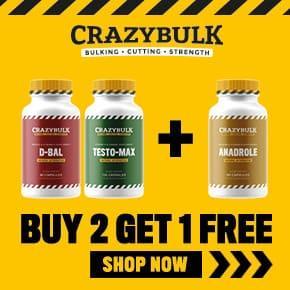You’re sitting at a café with a friend who’s just started hitting the gym again. He shares how his energy’s tanked and recovery feels impossible. You nod because you’ve been there too—wondering if there’s a real solution beyond endless supplements. That’s when the conversation turns to peptides vs TRT. Suddenly you’re both curious. What’s the difference and which one actually helps you reclaim your strength and vitality? If you’ve ever found yourself asking the same questions you’re not alone.
Understanding Peptides and TRT
Sometimes you hear two gym friends talk about feeling tired all week, then you see one look much better after trying something new. Maybe you've wondered, How did they bounce back so fast? Peptides and TRT come up often in these stories about muscle, strength, and faster recovery.
What Are Peptides?
Peptides are short chains of amino acids. Your body uses peptides for lots of things—like building muscle, healing, and making hormones. Growth hormone-releasing peptides (like GHRP-6) help your body release more growth hormone. That push can lead to quicker recovery, muscle gain, and fat loss. Some athletes use BPC-157 or TB-500 to help injuries heal faster, especially if joint pain slows their workouts. Peptides usually get used through shots, creams, or pills, depending on the type.
What Is Testosterone Replacement Therapy (TRT)?
Testosterone replacement therapy (TRT) gives you extra testosterone. If your levels drop, you might feel tired, lose strength, or struggle to keep muscle. With TRT—commonly given as injections, gels, or patches—your testosterone rises back to a normal or higher range. Many bodybuilders report increased energy, better mood, and bigger muscles while on TRT. You might see faster recovery and better workout results, especially if you felt weak or sore before starting. People often check their hormone levels before starting TRT, because it helps target personal goals safely.
Comparing Peptides vs TRT
You want to build more muscle, feel stronger, and recover faster. You might ask, “Should I use peptides or TRT for better results?” Let’s look closer at both to help you choose what fits your goals.
Mechanism of Action
Peptides work with your body’s natural system. They’re small chains of amino acids—think of them as messengers that tell your body to make more hormones like testosterone. For example, some peptides trigger your pituitary gland to boost its natural testosterone production. You keep making your own hormones, just with a little more help.
TRT gives your body extra testosterone. You take it through shots, patches, or gels. Instead of telling your glands to work more, you add testosterone straight into your system. For guys with very low testosterone, TRT works fast to raise levels.
Effectiveness for Hormone Optimization
Peptides support your body if you want a steady push. Many lifters notice better fat loss, easier muscle gain, and even smoother skin when using peptides. If you need a boost but want to keep your hormone levels natural, peptides can support that. For example, lifters use peptides like GHRP-6 for recovery after hard workouts.
TRT gives a big jump in testosterone if your levels are very low. Many bodybuilders feel stronger, gain size faster, and bounce back from tough sessions with proper TRT. Specialists use it a lot for guys whose natural testosterone can’t keep up.
Safety and Side Effects
Peptides deliver results with fewer side effects. Most users don’t see big changes outside of the results they want. For example, you might notice more energy or lean muscle, but less risk of mood swings or acne.
TRT can come with more risks. Some users notice things like pimples, hair loss, or changes in mood. There’s also talk about a higher chance of heart issues if you use it long-term. TRT usually means you’ll need to stick with it to keep feeling the effects.
Use this info to weigh your options. Do you want a gentle boost or a fast fix? Both choices can help muscle-builders and bodybuilders reach new levels.
Benefits and Drawbacks of Peptides
Peptides can help your body make more of its own hormones. Many bodybuilders use them for muscle growth and faster recovery. Are you thinking about using peptides to see better results in the gym?
Pros of Peptides
Stimulate Natural Hormone Production
Peptides tell your body to create more testosterone by signaling your brain, not just adding it from outside. Your body keeps control, so hormone levels stay natural. Many users notice stronger workouts and quicker healing.
More Natural Hormonal Balance
Peptides help your hormones stay even and steady. Some gym friends say they feel normal—not up and down like with heavy testosterone doses—because the body handles its own balance.
Fewer Side Effects
Most users get little to no side effects. That's because peptides come from simple sources like eggs, hemp, or milk. You skip most of the risks, such as acne or fast hair loss, linked to testosterone shots.
Additional Benefits
Peptides do more than boost testosterone. They support lean muscle, fat loss, skin repair, better sleep, and sharper focus. For some, peptides even lift mood, calm anxiety, and help control weight.
Non-Lifelong Treatment
Many can stop taking peptides after they reach their fitness goals. Your body keeps making its own hormones, so you're not hooked on weekly shots or patches forever.
Cons of Peptides
May Be Less Potent for Some Conditions
Peptides work best if your body still makes some testosterone. If you’ve got very low levels, they might not lift your hormones enough. Some bodybuilders with hypogonadism—where the body stops making testosterone—see better results with direct testosterone.
Limited Scope in Some Therapies
Peptides don’t replace testosterone directly. They only help your body make more, so results depend on your own biology. That means less benefit for those with very damaged or inactive hormone systems.
Administration Methods
Many peptides need to be injected or sprayed in your nose. Taking a pill isn’t always an option. For some, this feels tricky or not very pleasant.
Peptides let your body lead. They support natural hormone gains, with very few side issues, and help in more ways than just lifting testosterone. But if you need big boosts, or if your body can’t make testosterone at all, you might need another answer.
Benefits and Drawbacks of TRT
Testosterone Replacement Therapy (TRT) is a common choice for bodybuilders who want more muscle, faster recovery, or a quick energy boost. Many athletes use TRT to feel stronger and work out harder, but it's important to know both the ups and downs.
Pros of TRT
TRT gives a fast boost in testosterone because it sends real testosterone right into your body. For anyone with low T, this means you'll start feeling better, often in just days. Your muscles might get bigger, your bones stronger, and your energy go up. Some people feel more focused and want to train harder.
Think about days when you left the gym ready to crash. After starting TRT, you could notice those days get fewer. TRT is also very well tested, so doctors know how to use it safely for people with low T. It’s made a difference for people who were tired, weak, or losing muscle.
Cons of TRT
TRT has some real downsides. You might get acne or lose hair on your head after you start. Some people notice mood swings or get upset easier than before. For bodybuilders who want kids later, TRT can hurt sperm counts and make it tough to have a baby.
You'll need to stick with TRT for life if you want results to last. Your body stops making its own testosterone, so quitting can leave you feeling worse. Some guys get heart problems after taking TRT for a long time. TRT demands regular checkups with your doctor, and kids, don’t try to guess your own dose.
Is the jump in muscle and energy worth it? For some, yes. For others, the risks might be too much. Think about what your goals look like before starting.
Choosing the Right Option: Peptides or TRT?
Ready to boost muscle, strength, or bounce back fast after a hard workout? Picking peptides or TRT can shape your journey. What works better for you depends on your goals, your health, and how your body feels on either option.
Who Should Consider Peptides?
Want to keep your body running smooth and natural? Peptides help your body make its own hormones, which can keep things in balance for longer. These are popular for guys aiming to build muscle and recover faster, but not wanting big risks. For example, people who use GHRP-6 say they notice more muscle growth with less soreness. Using peptides can also help your skin and focus bounce back. If you want to take fewer chances with side effects and still see slow, steady gains, peptides are a smart choice. Fewer side effects mean you might avoid things like acne or mood swings that stronger therapies sometimes bring. Plus, peptides target certain parts of the body, so you pick what you want to work on—like healing, muscle, or how sharp you think in the gym.
Who Should Consider TRT?
Looking for more power and want fast results? TRT gives you a big jump in testosterone, which can help your strength, size, and energy almost right away. If tests show your T is really low—maybe you feel tired, weak, or struggle to build muscle—TRT could help you snap back in days. Lots of bodybuilders share how TRT helped them lift heavier and recover quicker. But here’s the thing: TRT is strong, so you may notice things like oily skin, hair loss, or mood changes. There’s also a higher risk of heart problems down the road. Choosing TRT means you’ll likely use it for a long time. Need a big, fast boost with full support from your doctor? TRT might be your best fit.
Think about this: What matters most to you—slow, steady gains with fewer bumps, or a speedy, strong boost that might mean more risks? Your goals and your body’s needs set your path.
Conclusion
Choosing between peptides and TRT comes down to your personal goals and current health status. Both options offer unique benefits and potential drawbacks so it's important to think about what fits your lifestyle and long-term plans.
Before making any decisions talk to a healthcare professional who understands hormone optimization. You'll get a plan that's customized to your needs and helps you maximize results safely. Remember your journey to better energy and recovery starts with informed choices.
Meet BDPT Voices: Dr. Olivia Sterling, Jackson “Jax” Fairweather, and Aria Montgomery. Together, they form the analytical and creative heart of BDPT, delving into the world of celebrity physical transformations. From medical insights to sports analysis to entertainment trends, BDPT Voices offers a multifaceted exploration that captivates, informs, and challenges readers.




